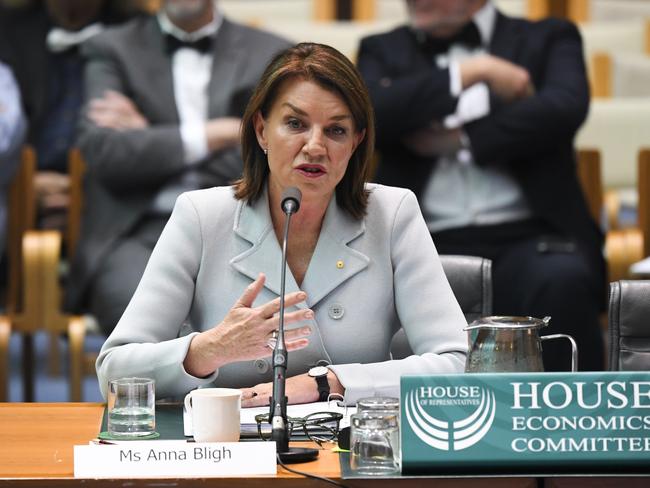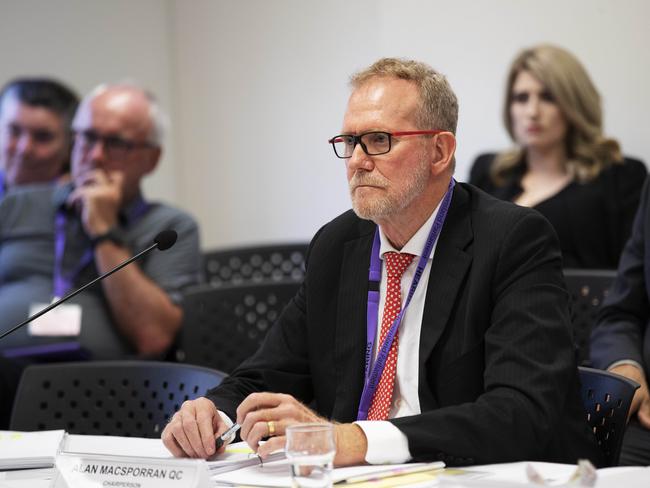Ethics Committee critical of CCC’s ‘lack of evidence on need for strict liability laws’
Parliament’s powerful Ethics Committee has challenged corruption watchdog boss Alan MacSporran to lay out why the so-called ‘Trad laws’ – that they say would have seen an ex-premier jailed – need strengthening.
Police & Courts
Don't miss out on the headlines from Police & Courts. Followed categories will be added to My News.
PARLIAMENT’S powerful Ethics Committee has challenged corruption watchdog boss Alan MacSporran to lay out why the ‘Trad laws’ need strengthening.
The eight-page submission, released today, argues Mr MacSporran has provided no evidence for the need for strict liability laws in which all MPs would face imprisonment for not declaring conflicts of interest, even if their oversight wasn’t intentional.
The committee says the laws would see people like former premier Anna Bligh facing jail for honest mistakes.
Campbell Newman’s broadside at CCC over Jackie Trad integrity laws
Opinion: Prominent lawyer says so called ‘Trad laws’ go too far
“As a general comment, the committee is concerned that firstly, there is a lack of evidence offered by the CCC as to the extent and nature of the corruption by the Executive or by Parliamentarians it proposes be addressed, and secondly, there is a lack of evidence that the proposal would address any such problem,” it said.

The Government’s draft laws propose criminal sanctions in situations where a minister has intentionally not declared an interest.
But Mr MacSporran has said the laws will not fully enact recommendations stemming from the CCC’s assessment of the purchase of an investment property owned by Deputy Premier Jackie Trad.
He’s since argued new laws should cover all MPs, not just ministers – in a shock move that’s rattled Labor and LNP backbenchers.
In its submission, the Ethics Committee argues it has been effective in its work investigating cases in which MPs had failed to properly update their register of member’s interests.
It points to two matters involving former Labor minister Gordon Nuttall and former LNP minister Scott Driscoll that saw them fined $82,000 and $90,000 respectively and imprisoned for perjury and corruption (Nuttall) and fraud (Driscoll) for their wrongdoings.

But Mr MacSporran’s vision for strict liability laws puts a backbencher who forgets to update the register about a new debit card issued by their bank in the same category as a minister who intentionally fails to disclose an interest for the sole purpose of engaging in corrupt conduct, the committee says.
Former premier Anna Bligh is used as an example of an MP who would have faced jail over her failure to declare a stay in the Sydney home of friend, former federal minister and Thiess board member Ros Kelly.
The committee found that although the house-sitting arrangement required disclosure, Ms Bligh had not realised staying at a family friend’s home should be disclosed and did so as soon as made aware.
The committee was able to use its discretion to ensure a reasonable approach, it said.
“Strict liability would have seen the former premier facing criminal charges for house-sitting for a friend,” it said.
The Committee argued that while criminal charges would not necessarily lead to a conviction, they would likely be career ending anyway.
The Ethics Committee said ministers should be held to a higher account than backbenchers but did not support the introduction of a strict liability offence for ministers, pointing to the fact this was not a common feature of parliaments worldwide.
“The committee advocates for evidence-based law and policy making and is unable to identify any solid evidence base to support the CCCs proposal,” it said.


